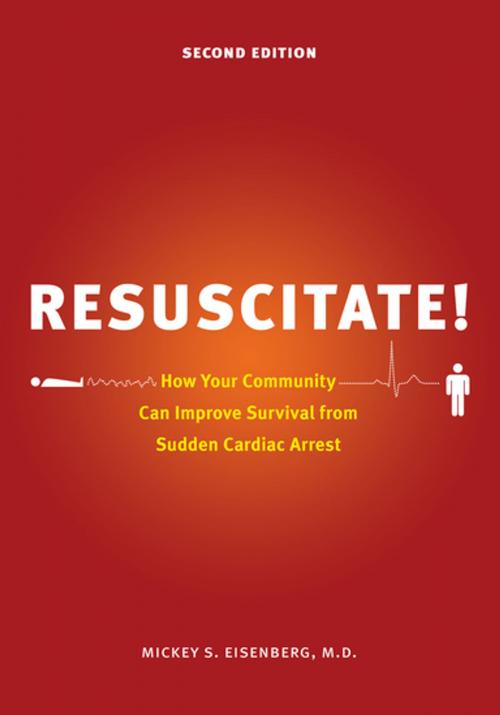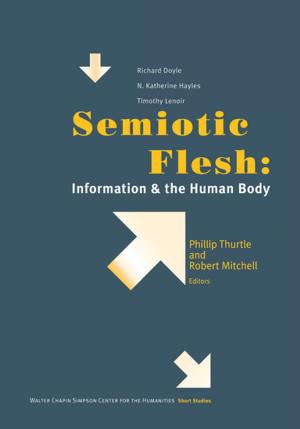Resuscitate!
How Your Community Can Improve Survival from Sudden Cardiac Arrest
Nonfiction, Health & Well Being, Medical, Reference, Public Health, Reference & Language, Education & Teaching| Author: | Mickey S. Eisenberg M.D. | ISBN: | 9780295804569 |
| Publisher: | University of Washington Press | Publication: | May 15, 2013 |
| Imprint: | University of Washington Press | Language: | English |
| Author: | Mickey S. Eisenberg M.D. |
| ISBN: | 9780295804569 |
| Publisher: | University of Washington Press |
| Publication: | May 15, 2013 |
| Imprint: | University of Washington Press |
| Language: | English |
Sudden cardiac arrest is the leading cause of death among adults, yet it need not be fatal. Though survival in most communities is very poor, a few communities achieve rates as high as 50%. Why are some communities so successful in snatching life from the jaws of death? Resuscitate! describes the steps any EMS system can take to improve cardiac arrest survival. It is written for the medical directors, administrative directors, fire chiefs, dispatch directors, and program supervisor who direct and run EMS systems all across the country, and for the EMTs, paramedics, and dispatchers who provide frontline care.
This second edition of Resuscitate! provides fifteen concrete steps to improve survival. Four steps will lead to rapid improvements at the local level and are relatively easy to implement. Six additional steps are more difficult to implement but also likely to improve survival. The remaining steps recommend changes at the national level.
Resuscitate! is the official textbook for the Resuscitation Academy, held twice a year in Seattle. Cosponsored by Seattle Medic One, King County EMS, and the Medic One Foundation, the Academy draws attendees from throughout the world for two intensive days of classes, demonstrations, and workshops to acquire the knowledge and tools to improve survival in their own communities. This new edition includes lessons learned from attendees of the Academy as well as from the faculty's evolving thoughts on how to measure performance and improve survival, one community at a time. It also includes an addendum on the Resuscitation Academy (resuscitationacademy.org).
For more than thirty years, Mickey S. Eisenberg M.D., Ph.D. , has played a leading role in developing King County, Washington's emergency response to cases of sudden cardiac arrest, a system recognized as among the very best in the nation. He is a professor of medicine at the University of Washington and serves as the medical director of King County Emergency Medical Services.
Sudden cardiac arrest is the leading cause of death among adults, yet it need not be fatal. Though survival in most communities is very poor, a few communities achieve rates as high as 50%. Why are some communities so successful in snatching life from the jaws of death? Resuscitate! describes the steps any EMS system can take to improve cardiac arrest survival. It is written for the medical directors, administrative directors, fire chiefs, dispatch directors, and program supervisor who direct and run EMS systems all across the country, and for the EMTs, paramedics, and dispatchers who provide frontline care.
This second edition of Resuscitate! provides fifteen concrete steps to improve survival. Four steps will lead to rapid improvements at the local level and are relatively easy to implement. Six additional steps are more difficult to implement but also likely to improve survival. The remaining steps recommend changes at the national level.
Resuscitate! is the official textbook for the Resuscitation Academy, held twice a year in Seattle. Cosponsored by Seattle Medic One, King County EMS, and the Medic One Foundation, the Academy draws attendees from throughout the world for two intensive days of classes, demonstrations, and workshops to acquire the knowledge and tools to improve survival in their own communities. This new edition includes lessons learned from attendees of the Academy as well as from the faculty's evolving thoughts on how to measure performance and improve survival, one community at a time. It also includes an addendum on the Resuscitation Academy (resuscitationacademy.org).
For more than thirty years, Mickey S. Eisenberg M.D., Ph.D. , has played a leading role in developing King County, Washington's emergency response to cases of sudden cardiac arrest, a system recognized as among the very best in the nation. He is a professor of medicine at the University of Washington and serves as the medical director of King County Emergency Medical Services.















